In today’s digital world, diners tend to research online before deciding where to eat. With so much information already available on search engines, your restaurant’s visibility can directly influence where customers choose to dine. That’s where restaurant SEO comes in. By optimizing your online presence, from your website to your Google Business Profile, you can appear higher in search results, attract more local customers, and boost both reservations and foot traffic.
Whether you run a cozy café or a fine dining restaurant, mastering restaurant SEO ensures that hungry diners find you first, right when they’re searching for their next meal. Let’s start by understanding what restaurant SEO really means, why it matters and tips to optimize it
What Is Restaurant SEO?
SEO (Search Engine Optimization) is the process of improving a website so it ranks higher on search engines like Google. The goal is to increase visibility when people search for products, services, or information related to your business. Good SEO means more people can find you online, leading to higher traffic and conversions.
Restaurant SEO applies these same principles to help restaurants appear in top results when diners search for places to eat. It focuses on optimizing your restaurant’s website, Google Business Profile, and online content to target local searches like “best sushi near me” or “Italian restaurant in New York.”

The Benefits Of Restaurant SEO
Investing in restaurant SEO brings lasting advantages that go beyond just appearing in search results. It helps your business connect with the right customers at the right time, when they’re actively searching for a place to eat.
1. Increase local visibility
With strong restaurant SEO, your business appears in top Google and Google Maps results when diners search for places to eat nearby. This visibility ensures that local customers find your restaurant before your competitors.
2. Boost website and foot traffic
When restaurant SEO is done properly, you can get a higher search ranking, which helps drive more visitors to your website and more customers to your tables. When people can easily find you online, they’re far more likely to visit your restaurant in person.
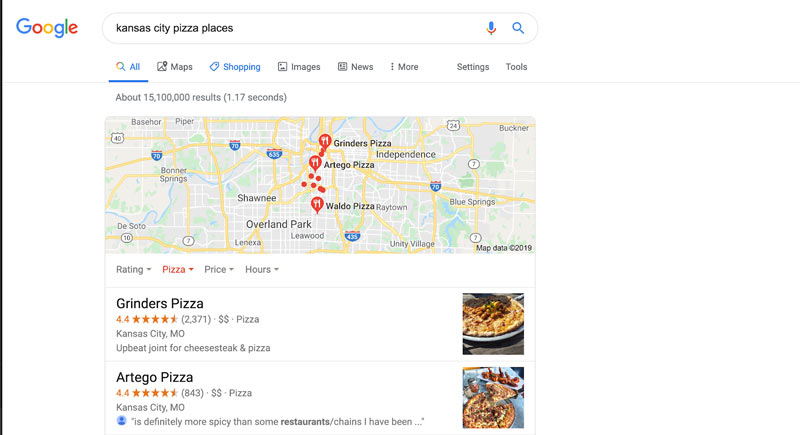
3. Build trust and credibility
Restaurants that rank well on Google are often seen as more reliable and popular. Combined with positive reviews, strong restaurant SEO helps establish your restaurant as a trusted choice not only for search engines but also real-life new and returning diners.
4. Attract targeted customers
Restaurant SEO connects you with people who are already looking for your type of cuisine or dining experience. This means you will be able to attract customers who are ready to book a table or place an order, not just casual browsers.
5. Gain a competitive edge
With so many restaurants competing online, effective SEO helps your business stand out. A well-optimized presence ensures you capture more local searches and stay ahead of nearby competitors.
5 Useful Tips To Optimize Your Restaurant SEO
1. Optimize your GBP:
Your Google Business Profile (GBP) is the foundation of effective restaurant SEO. It’s what helps your restaurant appear in Google Search and Google Maps when customers look for places to eat nearby. A fully optimized profile makes it easier for diners to find you, view your menu, and book a table, all before visiting your website.
Step 1: Create a Google Business Profile
Start by signing in to your Google account and visiting business.google.com. If your restaurant already appears in search results, claim it. If not, create a new listing by entering your business name and location.
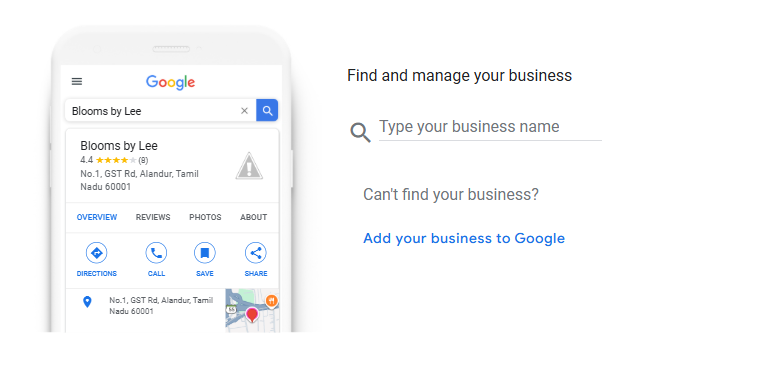
Enter your restaurant name exactly as it appears on your signage and marketing materials. Then choose a business category that best describes your restaurant, such as Italian Restaurant, Seafood Restaurant, or Café. The right category helps Google show your listing to people searching for your type of cuisine.
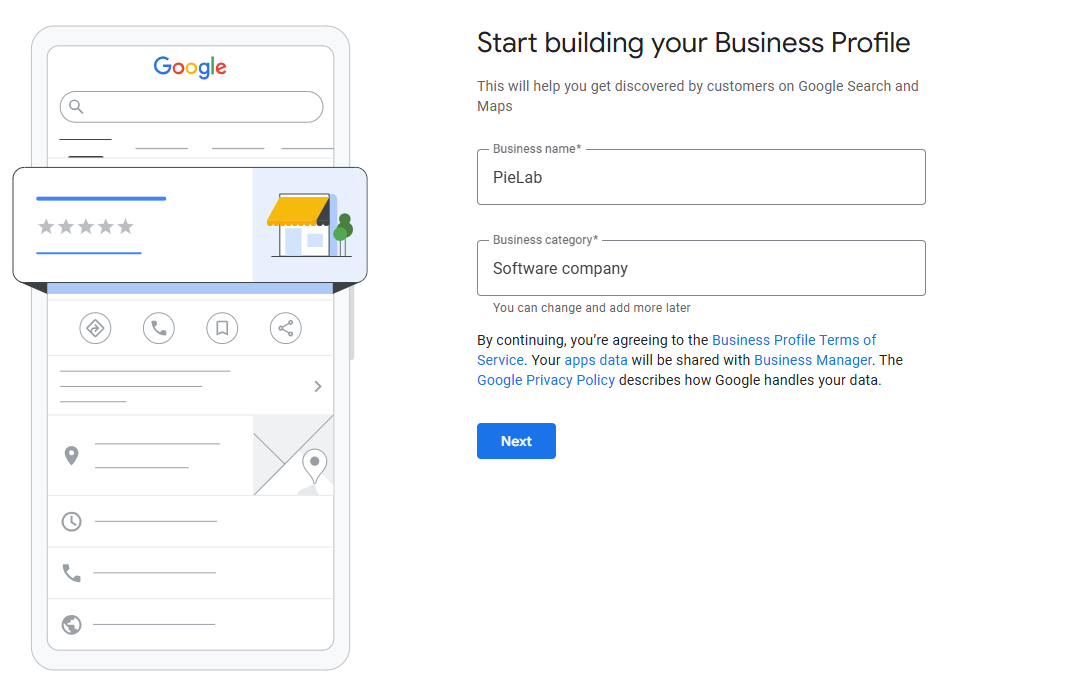
If your restaurant has a physical location, add your address so it can appear on Google Maps. For restaurants that offer delivery or catering, you can also set a service area to reach nearby customers.
Next, add your contact details, including your phone number and website URL, so diners can easily call or place an order online. Double-check this information for accuracy before clicking “Finish” to proceed.
Google will then guide you through a verification process, usually by phone, email, or postcard, to confirm that you’re the legitimate owner.

Step 2: Optimize your profile
A compelling business description that tells diners will be what makes your restaurant special. Highlight your cuisine, location, and atmosphere, and naturally include keywords such as “family-friendly Thai restaurant in Austin” or “vegan café in downtown Seattle.” A clear, keyword-rich description helps your profile appear for relevant local searches.
Visual content also plays a huge role in your restaurant SEO performance. Upload high-quality photos of your dishes, interior, exterior, and even your staff in action. Restaurants with vibrant images get far more clicks and reservations because visuals influence dining decisions. If it is possible, add short videos that showcase your ambiance or signature dishes.
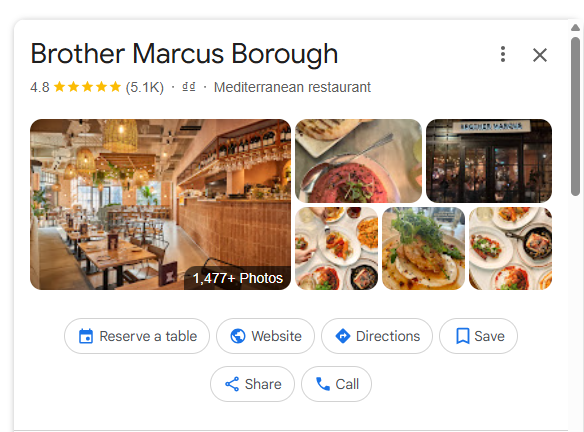
Don’t forget to add your menu directly to your profile so customers can browse your dishes without leaving Google. If you offer online reservations or delivery, include direct links to those pages, this makes it easier for people to take action the moment they discover you.
Step 3: Stay updated and active
Keeping your information and menu up to date is just as important as adding it. When customers see accurate details and current offerings, it builds trust and prevents frustration. Outdated menus or broken links can quickly discourage potential diners.
As a restaurant owner, make it a habit to actively manage your reviews, not just wait for them to appear. Encourage satisfied diners to share their experiences, especially right after their visit when impressions are fresh. Then, take time to reply to every review, whether it’s glowing praise or constructive feedback. A simple thank-you or a thoughtful response shows that you genuinely care about your customers’ opinions.
Staying engaged this way keeps your Google Business Profile active and trustworthy. Google rewards consistent owner activity, and potential diners are more likely to choose a restaurant that responds and interacts with its guests. In short, genuine engagement through reviews helps build both your reputation and your local search visibility.
2. Use Local Keywords
Local keywords are the backbone of restaurant SEO. They help Google understand where your restaurant is located and what kind of food you serve, so it can show your business to nearby diners searching for those exact terms.
Start by identifying the phrases your potential customers are likely to search for online. Use keyword research tools like Google Keyword Planner, Ahrefs, or Ubersuggest to uncover the most popular terms people use in your area. For example, you might find searches such as “best Italian restaurant in Austin”, “vegan café near Times Square”, or “family-friendly seafood restaurant in San Diego.”
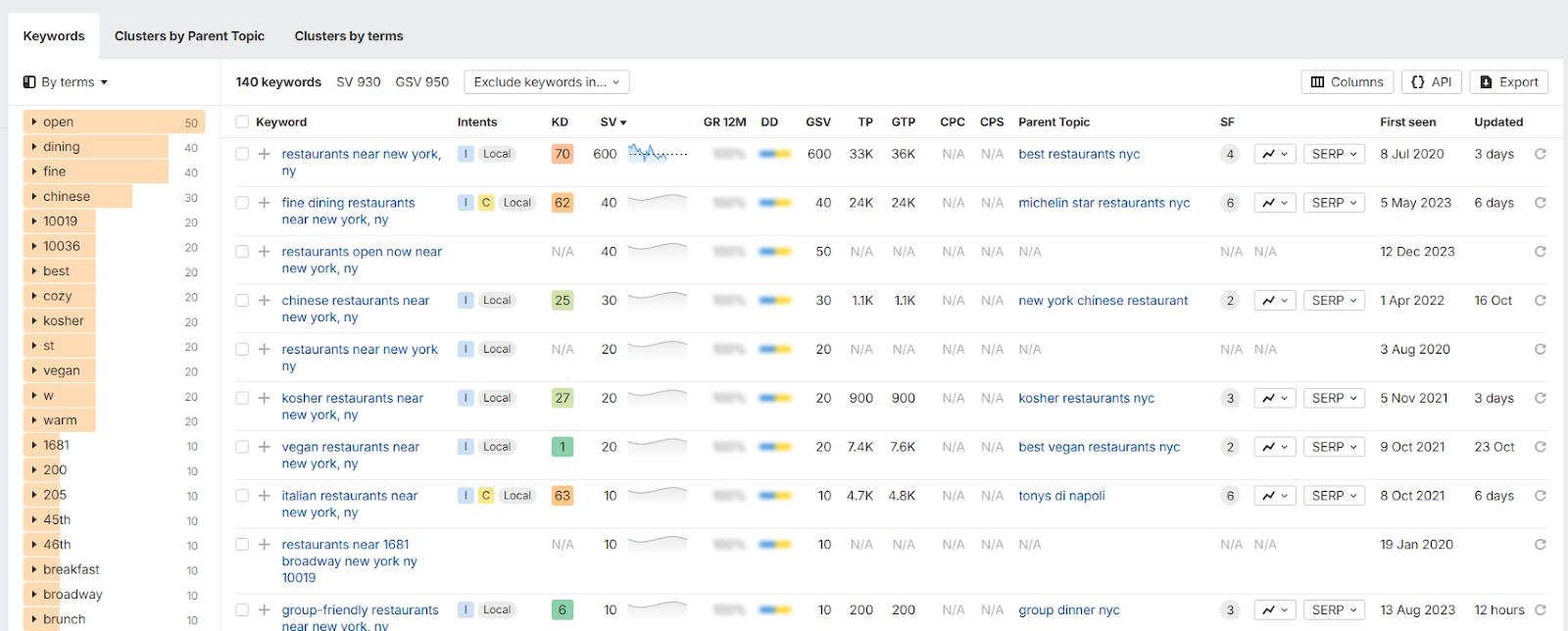
These insights help you target location-based keywords that attract diners actively looking for restaurants like yours, improving both your visibility and your chances of appearing in “near me” searches.
Once you’ve found your target keywords, naturally include them throughout your online content. Add them to your website’s homepage, menu pages, meta descriptions, and image alt texts. Don’t forget your Google Business Profile, your business description, posts, and even replies to reviews can all include relevant local keywords when used naturally.
Avoid keyword stuffing. Instead, focus on writing clear, authentic descriptions that both customers and search engines can understand. When your content sounds genuine and accurately reflects your restaurant’s offerings, Google rewards it with better local rankings.
Consistent use of local keywords helps your restaurant appear in “near me” searches and map results, bringing in customers who are actively looking for a place to eat right in your area.
3. Add Schema Markup
Schema markup is a small piece of code that helps search engines better understand your restaurant’s content. By adding it to your website, Google can display rich details such as opening hours, menu items, reviews, and even reservation links directly in search results. This extra information makes your listing stand out and builds trust with potential diners before they even click through.

There are several types of schema useful for restaurant SEO, including LocalBusiness, Restaurant, Menu, and Review schema. Implementing these helps Google accurately showcase your restaurant’s location, cuisine type, and offerings.
For Shopify merchants running a restaurant or F&B service, setting up schema doesn’t have to be complicated. Simply install the SearchPie SEO app, which allows you to enable Local SEO schema with just a toggle of a button. This automated setup ensures your structured data is added correctly and stays updated without the need for manual coding.
4. Build Local Backlinks
Backlinks, links from other websites pointing to yours, are a key ranking factor for restaurant SEO. They act as online endorsements that tell Google your business is trustworthy and relevant. The more high-quality local websites link to you, the stronger your restaurant’s authority becomes in local search results.
Start by building relationships within your community. Partner with nearby businesses, sponsor local events, or collaborate with food bloggers who review local restaurants. Getting featured on tourism websites, local directories, or community blogs also helps create valuable backlinks that boost your visibility.

If you’re a Shopify merchant, you can make backlink building even easier with SearchPie. The app’s Backlink feature allows you to track and analyze your existing backlinks while identifying new opportunities to grow your restaurant’s online authority. It helps monitor backlink performance and simplifies setup, all from one dashboard.
Building strong local backlinks takes time, but it’s one of the most powerful long-term strategies for improving your restaurant’s search ranking and local credibility.
5. Use Social Media To Drive Local Traffic
Social media is one of the most effective ways to boost your restaurant SEO and attract nearby diners. Platforms like Instagram, Facebook, and TikTok let you showcase your dishes, share updates, and connect directly with your local audience. When people engage with your posts , liking, sharing, or tagging your location, it sends strong signals to Google about your restaurant’s relevance in the area.

Post regularly with high-quality photos of your food, behind-the-scenes moments, and daily specials. Use local hashtags and tag your location in every post to help potential customers discover your restaurant. Sharing user-generated content, such as customer photos or reviews, can also build authenticity and encourage more people to visit.
Don’t forget to link your social media accounts back to your website and Google Business Profile. This creates a connected network of online signals that strengthens your local SEO. The more active and consistent you are across platforms, the more visibility your restaurant gains, both on search engines and social feeds.
Conclusion
In today’s digital-first dining world, strong restaurant SEO is no longer a bonus, it’s a must. Most people search online before choosing where to eat, so how your restaurant appears on Google can make all the difference in attracting new customers.
By optimizing your Google Business Profile, using local keywords, adding schema markup, and building local backlinks, you make it easier for diners to discover your restaurant when they’re ready to order or book a table. Staying active on social media and engaging with customer reviews also helps build trust and keeps your business visible in local searches.
If you’re running your restaurant or café on Shopify, SearchPie app can simplify much of this process. It helps you set up local SEO schema, track backlinks, and manage your optimization with just a few clicks.
Keep refining your online presence and stay consistent. The more visible and connected your restaurant is online, the more people will walk through your do














